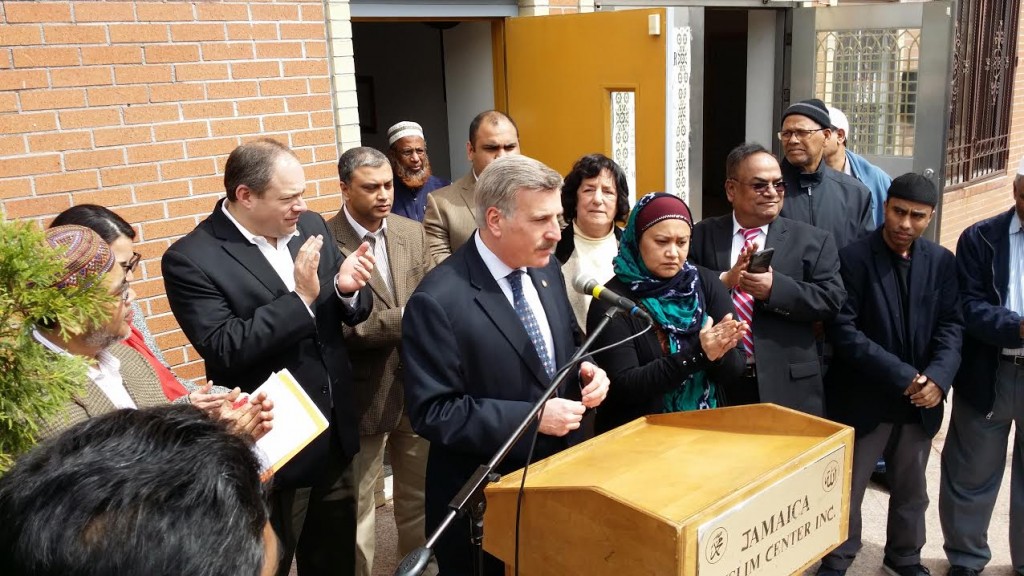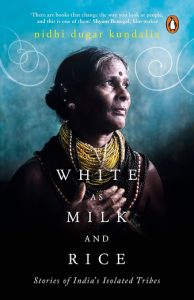Written by-Mazeda A. Uddin
How did you learn community leadership skills in your society?I was very involved in my community when I was a student in my native country of Bangladesh. I helped people in my College and I was very concerned for the welfare of my fellow students. I enjoy helping. Since I don’t help out of obligation, I’ve learned to lead and participate in ways that energize everyone and help me grow as a woman activist in my community. I take on challenges that are fun, rewarding and interesting. It is from this background that I learned leadership skills.
What do you think is the greatest challenge you are facing in your community right now?
The greatest challenge is to get the women in my community more involved in politics in the USA. The South Asian women are very traditional in nature and are reluctant to get involved in the political arena. I choose to work on women’s issues that we all care about such as gender inequality, discrimination etc. Establishing the Bengali Language on the Ballot, a senior care center, increasing job opportunities for men and women in my community, getting rid of injustice towards women or empowering others to lead are my main priorities. Leadership always presents challenges both to my abilities and to me as a woman. Women are still victims of inequality, discrimination, violence, and even the threat of death simply because they are women. I must awaken them to their political power so that they can do better in our very complex society.
What do you think are the most important qualities in successful community leadership?
A successful leader reaches out to her community to see what the important issues are. A successful community leader explores cultural diversity and the organizations that various groups create to meet their personal, social, economic and development needs. A community leader identifies needs, then develops and implements social-change strategies, He/she develops peoples’ abilities to influence the political process through effective citizenship.
He/ She must be in the field asking questions and meeting people face to face. A successful leader can not stay at home. He/ She also has to have a great work ethic as much of community leadership goes beyond the normal nine to five workday.
What advice can you give as a community leader about what work that successfully accomplishes a task?
The best advice I can give is to get everyone involved and get their input as to how a project should be accomplished. The more input a person has towards a specific project the harder they will work to get that project done
What is your vision to building a stronger community?
I never doubt that thoughtful and committed women can change the world. I seek to build a strong, healthy and engaged community by connecting women and men of all ages with opportunities to serve and by providing resources to women and agencies in order to build creative and effective women’s projects, programs and partnerships.
My vision is to get everyone registered in my community to vote. Voting is power. First I want to get the whole community, especially the women of the community registered to vote. Then I want to orchestrate “Get out the vote” drives in my community. Those communities that vote in high numbers will become empowered and will become very strong.
How do you get the community to do what you want for the community?
I speak to people on a one on one basis. There is no substitute for face to face communication. If you educate people on a one to one basis on the needs of the community they will be inspired to do more work for the community.
What has been the greatest challenge that you have faced as a community activist/leader and how have you solved it?
The greatest challenge is to motivate people especially the women to get more involved in politics and community affairs. As a woman community leader, I have been making profound contributions. I have solved this problem by constantly reaching out on a one on one basis to get people motivated. There is no substitute for hard work and talking to people to get them more involved. And it is especially challenging to get women of the South Asian culture more involved. But I will not give up.
What has changed in the community since you got involved and how has it changed what a community leader has to do?
There are more issues that have come to the forefront since I became involved such as Bengali Language on the Ballot, providing Halal food in the schools, building a culturally sensitive Senior Citizens Center and helping immigrants becoming full fledged citizens in this great country. A community leader has to have the ability to develop a different set of skills to cope with these new challenges. A community leader has to be flexible and develop an array of skills to cope with each emerging problem as they come to the forefront.
How do you find and train new community leaders in your community?
Many times a person in the community will ask to be more involved in community affairs. I also find leaders when I hear someone in a group of people ask very thoughtful and intelligent questions about community affairs. I prefer to see community engagement, social capital, leadership, collaboration and communication in a community leader. Each of these components contributes to the overall success of a community leader. Whether he/she has the opportunity to encourage far-reaching community change and address them as a whole or has to tackle them one at a time, being aware of these components is an important first step to improving community leadership.
I approach these individuals after the meeting has concluded and ask them to get more involved in the community. This is an excellent way to find good people.
As far as training future leaders I believe that to mentor a person is the best training for this kind of situation. I give a lot of advice to new and young leaders. I also refer them to other successful community leaders for them to share their experiences as well. One on one communication is the best type of training for this type of work.
What is your strong role model for a future project as a community leader/activist in the community?
Right now I would say that my strong project is to establish a culturally sensitive Senior Citizens Center for my community. The elderly in this community have specific dietary needs such as Halal and vegetarian food. This should be addressed in such a center. There will be other issues as well that will have to be addressed for this type of population. I find this to be a challenge that I am interested in taking on and accomplishing so that the elderly in our community will be well provided for in the future.




